
Knaresborough man raises money to send fire engine to Ukraine
Bob Frendt from Knaresborough buys an emergency vehicle for a city left without fire engines.
2023-09-29 21:49
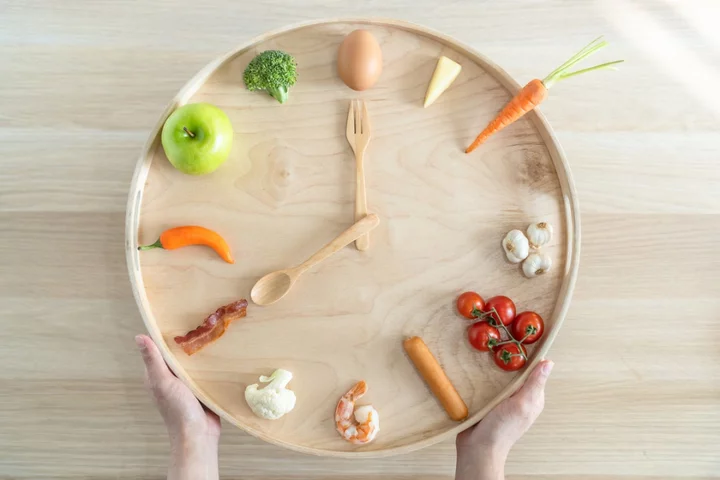
The exact time Brits find themselves ‘uncontrollably hungry’ revealed
One in four Brits find themselves uncontrollably hungry by 10:30 am, research has found. A study of 2,000 adults found they typically snack twice a day, with sausage rolls, crisps, biscuits and bananas the most popular choices. But 27 per cent get the munchies by mid-morning, and a third have even got out of bed for a midnight snack. Other popular treats include chocolate bars, nuts, cake and crackers. A spokesman from Wall’s, which commissioned the research as part of its ‘When hunger calls, grab a Wall’s’ campaign, said: “Sometimes a snack can be an absolute saviour to your day as the research has shown. “Uncontrollable hunger at times can absolutely take over and leave you unable to get on with your day until it’s been satisfied. “And there’s real enjoyment taken from ridding of this hunger whenever it strikes with a snack never being far away.” The study also found 23 per cent of adults don’t usually have breakfast, with 36 per cent of those claiming they are more prone to snacking as a result. When watching TV, over the weekend and in the workplace were the most common times and places to chomp on a treat. And more than £10 is spent on them in a typical week, according to the OnePoll data. More than seven in 10 (73 per cent) have snacks stocked up in their homes for when they need them, and 25 per cent have hidden them from loved ones. While 21 per cent have a dedicated drawer in their workplace for keeping them for when hunger calls. The importance of a snack cannot be underestimated though as 60 per cent believed a great treat can save a rubbish day. To avoid a bad day, 33 per cent will typically pack one for themselves when leaving the house. However, 20 per cent have been made to feel guilty about their snacking habits with others pointing out the frequency they so do. A spokesperson from Wall’s [https://www.instagram.com/wallspastry], added: “Hunger can be overpowering and there’s nothing worse than being caught short and having nothing to hand. “However, there’s no better feeling than finally chomping on something after having been hungry for a while and satisfying that desire. “Snacks such as sausage rolls are a great and versatile option for when hunger calls.” Top 20 most popular snacks, according to Brits: 1. Crisps 2. Biscuits 3. Chocolate bar 4. Banana 5. Nuts 6. Cookies 7. Cake 8. Toast 9. Apple 10. Grapes 11. Crackers 12. Cereal bar 13. Yoghurt 14. Sausage roll 15. Orange/satsuma 16. Cereal 17. Doughnut 18. Berries 19. Flapjack 20. Popcorn Read More Smoking during pregnancy doubles premature birth risk, study finds Four in ten Brits ignore potentially serious eye problems, study finds Study finds women only give themselves 30 minutes of self-care a week Children avoid sleepovers due to fears of wetting the bed Most unwanted gifts people have received The best napping method to help with pulling an all-nighter
2023-09-29 18:55

Daily activities could help lower heart attack risk, study suggests
Everyday activities like walking up the stairs or playing with children could help lower the risk of heart attack, stroke and even premature death, new research suggests. The experts found that although short bouts of incidental activity are good for you, the how long you do them for, and how vigorously makes a difference. The findings may make physical activity much more accessible to people who are unwilling or unable to take part in structured exercise, researchers say. They found that the longer the bouts of activity, the better, regardless of total activity levels. The large majority (97%) of this everyday physical activity, like walking to the bus stop or household chores, was made up in bouts lasting less than 10 minutes. In a group of people who said they did not take part in exercise or sport, short bouts of less than 10 minutes at a moderate to vigorous intensity were associated with a steep decrease in heart attack and stroke, and death by any cause. According to the findings, moving consistently for at least one to three minutes was linked to significantly more benefit (29% lower) than very short bouts of movement that lasted less than one minute. Senior author Professor Emmanuel Stamatakis from the University of Sydney’s Charles Perkins Centre, in Australia, said: “From walking up the stairs to speedily mopping the floors, in recent years we’ve come to understand that it is not just structured exercise that is good for our health, but we know very little about how these short bouts of incidental activity translate to health benefits.” He added: “The take-home message here is any type of activity is good for your health, but the more effort you put into those daily tasks and the longer you keep up that energy, the more benefits you are likely to reap. “If you are huffing and puffing and unable to hold a conversation for some of that time you have hit the sweet spot.” Lead author Dr Matthew Ahmadi said: “The idea of accruing short bouts of moderate to vigorous activity through daily living activities makes physical activity much more accessible to people who are unwilling or unable to take part in structured exercise. But as we see in this data, the length and the vigour people put into these incidental activities matters.” The risk of all-cause death and major cardiovascular events (heart attack or stroke) was 29-44% lower for activity periods of five minutes to less than 10 minutes, than bouts of less than one minute. The study, published in The Lancet Public Health, also found that the higher the amount of vigorous activity in each bout the better. People who huffed and puffed for at least 15% of the activity period (10 seconds per minute) saw the greatest benefit. Bouts of less than one minute were also associated with benefits if the above 15% vigorous activity rule was applied, researchers found. The researchers used data from wrist devices worn by 25,241 people aged 42 to 78, in the UK Biobank database, and artificial intelligence to analyse the seven-day physical activity patterns in people who said they did not exercise. The study linked these physical activity patterns with health records, following people for close to eight years to identify how length and intensity of physical activity bouts were linked to health status. Dr Ahmadi added: “This study suggests people could potentially reduce their risk of major cardiac events by engaging in daily living activities of at least moderate intensity where they are ideally moving continuously for at least one to three minutes at a time. “In fact, it appears that this can have comparable health benefits to longer bouts lasting five to 10 minutes.” Read More Charity boss speaks out over ‘traumatic’ encounter with royal aide Ukraine war’s heaviest fight rages in east - follow live From tiredness to sweating – subtle warning signs something could be wrong with your heart Breast Cancer Awareness Month: 9 brilliant beauty buys supporting good causes Smokers 2.6 times more likely to give birth prematurely
2023-09-29 16:48
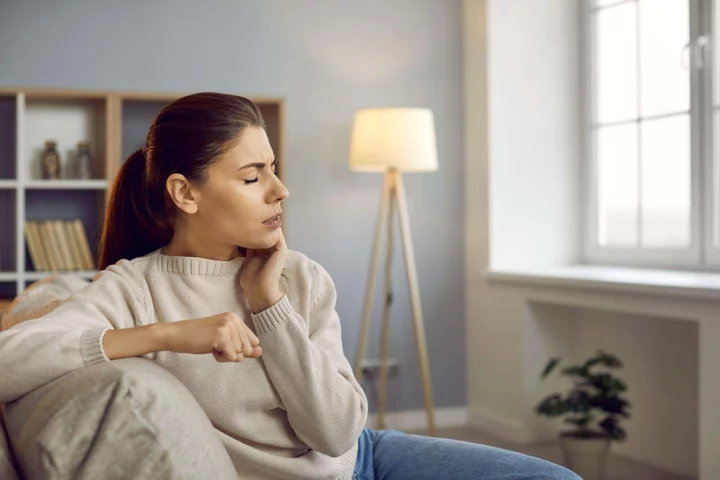
From tiredness to sweating – subtle warning signs something could be wrong with your heart
People can go years with no idea they have something wrong with their heart. Symptoms can be vague and subtle and many heart conditions are ‘hidden’ – meaning they’re not obvious from the outside. “Hidden heart conditions often go undiagnosed for too long, until something goes wrong or it’s too late,” says Sindy Jodar, senior cardiac nurse at the British Heart Foundation (BHF). “That’s why it is important to never ignore the signs of heart disease and get yourself checked, just to be sure.” While some warning signs are easy to spot – such as severe chest pain and collapse – there are also many little indicators that something could be wrong with your heart or circulatory system. These won’t necessarily mean you have a heart problem, but it’s always best to have them investigated. From tiredness and nausea to fainting, here are some of the less obvious symptoms everyone needs to know about… 1. Feeling unusually tired Dr M Adil U Khan, a GP at Pall Mall Medical, says you should not “ignore or downplay unusual levels of tiredness”. While it’s normal to feel exhausted if you’ve been very busy or lacking sleep, he adds: “Feeling unusually tired, especially if it’s not related to exertion, should be investigated.” It could be due to something like anaemia, a virus, or even linked to mental health. It could also be related to your heart, so it is important to have it investigated. 2. Subtle discomfort “Look out for subtle discomfort in different areas of your body, including discomfort or pain in the jaw, neck, back, or stomach, which can be associated with a heart problem,” says Khan. If symptoms are out of the norm for you and aren’t going away, it’s always best to get them checked. 3. Unusual swelling Perhaps you have noticed your ankles look particularly puffy, or maybe it’s your general tummy area that’s constantly swollen for no apparent reason. “Unexplained swelling, known as oedema, in the legs, ankles or abdomen, may also be signs of heart failure,” explains Khan. 4. Vomiting and a choking sensation Sudden vomiting or a choking sensation in your throat is something to be wary of too. “While not every bout of nausea means there could be something serious happening, feeling sick combined with other aches and pains, such as severe chest pain, should ring an alarm bell,” says Jodar. Yes, it could be a stomach bug, but if you are having sudden spells of vomiting and nausea more regularly and you’re not sure why, don’t delay in get things checked out. 5. Fainting If you experience sudden fainting, this is a big indicator of something being awry. “If fainting or any other symptom becomes a problem, consult a healthcare provider and schedule an appointment with a doctor or cardiologist,” says Khan. “Discuss your symptoms, medical history and risk factors with them. “Your healthcare provider will assess your vital signs and perform a physical examination. Depending on your symptoms and risk factors, you may undergo diagnostic tests like ECGs, echocardiograms, stress tests, blood tests, or more specialised cardiac assessments,” he adds. 6. Shortness of breath Struggling to catch your breath is not a trivial matter. “Anyone experiencing shortness of breath during everyday activities or at rest should see their doctor,” says Khan. This is especially the case if it’s accompanied by chest pain – even if it doesn’t seem especially severe. Khan adds: “Mild chest discomfort should always be investigated, but some people mistake this for indigestion or muscular pain.” 7. Unusual sweating “Feeling hot, clammy and quite sweaty when you haven’t been doing strenuous exercise shouldn’t be ignored,” adds Jodar. “If this is combined with chest pains, it’s important you get yourself looked at.” 8. Heart rate irregularities Does your pulse sometimes feel jumpy or too fast? Get it checked with your doctor. Khan says: “Smartwatches and fitness trackers can provide valuable data about your heart rate and may detect irregularities to some extent. They can help track general trends in heart rate, especially during physical activity or rest. “However, they are not a substitute for medical-grade monitoring and evaluation… Any concerning symptoms should be evaluated by a healthcare professional for a comprehensive assessment and diagnosis,” Khan adds. Read More Charity boss speaks out over ‘traumatic’ encounter with royal aide Ukraine war’s heaviest fight rages in east - follow live Breast Cancer Awareness Month: 9 brilliant beauty buys supporting good causes Smokers 2.6 times more likely to give birth prematurely Female students ‘more than twice as likely’ to be affected by poor mental health, research shows
2023-09-29 15:58

Evergrande: Why should I care if China property giant collapses?
There are reports the leaders of the heavily indebted Chinese property giant have been detained.
2023-09-28 19:23
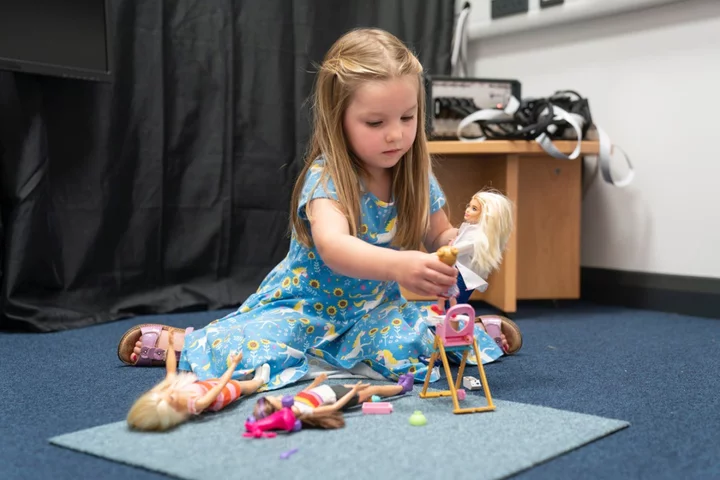
Playing with dolls could help a child’s social development
Playing with dolls could help the social development of children - including those with neurodiverse conditions such as autism, according to a study. The research, from Cardiff University, found children exhibiting higher levels of autism traits showed increased brain activity in a key region associated with social processing when engaging in conversations with individuals during doll play. The new findings suggested that broader social engagement with others while engaging in doll play was a unique pathway to social development for these children. This was in contrast to what was observed in neurotypical children, who were more likely to discuss the dolls’ thoughts and emotions. However, researchers said that despite this difference, it showed that both groups may be able to benefit from doll play by using it as a tool for practising social scenarios and developing social skills, such as empathy. The findings are the latest release from a multi-year study by the Centre for Human Developmental Science at the university’s School of Psychology. Previous years have focused on neurotypical children and found wide-ranging social and developmental benefits of playing with dolls. Now, in its third year, the research team has replicated those results with a more diverse range of participants, including children aged between four and eight displaying both high and low levels of traits associated with autism. Lead researcher Dr Sarah Gerson said: “Our study shows that doll play can encourage social processing in children, regardless of their neurodevelopmental profile. “The findings show that all children, even those who display neurodivergent traits commonly associated with autism, may use doll play as a tool for practicing social scenarios and developing social skills, such as empathy.” State-of-the-art functional, near-infrared spectroscopy equipment was used to explore brain activation while children played with dolls and on tablets, both by themselves and with another person, replicating conditions from the first year of the study. While observing children, researchers saw increased brain activity in the posterior superior temporal sulcus (pSTS) region - which is heavily involved in social and emotional processing such as empathy - when playing with dolls, for both play with a social partner and during solo doll play, but less so during solo tablet play. The study’s results suggest that doll play could support social processing, regardless of a child’s neurodevelopmental profile, but through different pathways. For children displaying fewer autistic traits in the research, talking about the mental states and emotions of the dolls they were playing with was associated with increased pSTS activity. In contrast, for those displaying more autistic traits, talking with others during doll play, even when playing by themselves, led to more social processing on a neural level. Other research has shown that social processing and empathy skills are important determinants in children’s future emotional, academic, and social success. The study was a collaboration with the Wales Autism Research Centre. ‘Create a more inclusive and supportive environment for their development’ Its director Dr Catherine Jones said: “The study reinforces how it is important that that we acknowledge and value neurodiversity. “This means recognising and valuing the diverse ways in which children’s brains work and approaching social development in a way that is inclusive and accommodating for all children, regardless of their neurodivergence. “By embracing all ways that children choose to play, we can create a more inclusive and supportive environment for their development.” Since the landmark publication of Piaget’s theory of cognitive development, the effects of play have been thought to be positive for kids’ social skills and creativity, but this has never been scientifically evidenced at the brain level. The multi-year long-term study, commissioned by Barbie, is the first time key Piaget theories on play have been scientifically evidenced via brain imaging and the first to use neuroimaging evidence with natural doll play, meaning there was no prescribed storyline to show how the brain is activated during doll play. Michael Swaisland, head EMEA of insight and analytics, Mattel, said: “We are proud to know that when children, regardless of their neurodevelopmental profile, play with Barbie, their playtime may benefit their development. “As Barbie continues to inspire the limitless potential in every child, we are delighted to know, through neuroscience, that playing with dolls may encourage the development of social skills such as empathy in children, including those who display neurodivergent traits commonly associated with autism. “We look forward to uncovering even more benefits of doll play through our long-term partnership with Cardiff University as we look to shine a light on the benefits the play pattern has towards development, that parents might not have been aware of.” Parents and caregivers can visit here to learn more about the research and access resources. Read More Toys children play with can have an effect on their success in adulthood The best exclusive discount codes this payday Many parents of under 5s on less than £50k ‘quit work due to childcare costs’ – survey
2023-09-28 17:51

Some children avoid sleepovers due to fears of wetting the bed
Eight in 10 children who experience bedwetting have never attended a sleepover - because they’re too embarrassed. A survey of 742 adults, with children aged 4-11, found that 69 per cent of kids have turned down an invite to a sleepover party. And nearly as many (67 per cent) of parents have declined an invitation on behalf of their child. To help parents and kids deal with the experience, and help kids make friends and gain independence through sleepovers, Pampers Ninjamas teamed up with Dr Ranj Singh on educational and fun content discussing bedwetting, and how to prepare for nights out of the home. The three-part series provides education about why bladder leaks can happen, as well as practical tips on how to manage them, particularly during sleepover moments. Paediatrician, TV presenter and author Dr Ranj, said: “Sleepovers can play an important role in developing the confidence and independence of children, as well as for their enjoyment. “So I am proud to be helping the 82 per cent of children who are currently missing out, to offer practical advice as to how to better prepare for overnight stays with friends and family.” The research also found more than a quarter (26 per cent) of respondents are not comfortable discussing bedwetting with parents hosting sleepovers. And 35 per cent report an increase in bedwetting before going back to school, suggesting scholastic stress could be a trigger. To combat the situation, 76 per cent have invested in a waterproof mattress, while 68 per cent have purchased nappies for older children. Read More Playing with dolls could help a child’s social development Study finds free childcare reform has ‘little benefit’ to poorer families Most children in kinship care living with at least one grandparent, figures show
2023-09-28 17:50

Female students ‘more than twice as likely’ to be affected by poor mental health, research shows
Female university students are more than twice as likely as male students to say they have been affected by poor mental health, new analysis suggests. Data shows 12% of female students say they have been affected, compared to 5% of males. Reported mental health problems among university students have almost tripled in recent years, according to the analysis. The percentage of undergraduate students at universities across the UK who said they had experienced mental health difficulties rose from 6% to 16% between the 2016/17 and 2022/23 academic years. It means one in six undergraduates now reports experiencing mental health challenges. The findings suggest further action should be taken to prevent mental health difficulties arising wherever possible, and that services are adequately resourced to support students quickly when they need help Professor Michael Sanders, King’s College London Analysis by the Policy Institute at King’s College London and the Centre for Transforming Access and Student Outcomes in Higher Education (TASO) found a significant part of this increase occurred in the last 12 months, a period during which the cost-of-living crisis intensified. Poor mental health is by far the most common reason for students wanting to drop out of university. Among those considering dropping out, the proportion citing financial distress as the main reason has risen from 3.5% to 8% between 2022 and 2023. But the general upward trend in mental health problems predates both the rise in inflation and the Covid-19 pandemic, indicating that other factors are likely to be at play, researchers said. The analysis – which drew on a dataset of 82,682 full-time UK undergraduates over seven years – shows some groups are more affected than others. Of the non-binary respondents, 42% said they have been affected by poor mental health, along with 30% of trans people. Bisexual people (28%) have the highest average levels of mental health difficulties among LGBTQ groups across the data, while gay men (14%) have the lowest – although this is still greater than the level seen among straight people (7%). White students (12%) have on average worse mental health than their peers from other ethnicities, but those with a “mixed” ethnicity (12%) are just as likely to have mental health difficulties. Undergraduates who attended state schools (15%) have on average worse mental health than their peers who attended private school (11%), while students who get most of their money through a maintenance loan, grant or paid work are more likely to have mental health difficulties than those on scholarships or with family support. Michael Sanders, professor of public policy at the Policy Institute and author of the study, said: “It’s clear the experiences of mental ill-health among students are deeply unequal, and exist along much the same lines as in society at large, with those from the most disadvantaged backgrounds or who often face discrimination being most likely in general to report struggles with their mental health. “The findings suggest further action should be taken to prevent mental health difficulties arising wherever possible, and that services are adequately resourced to support students quickly when they need help.” Dr Omar Khan, chief executive officer of TASO, said: “This report highlights the persistent and widespread mental health challenges faced by students. “While Covid and the cost-of-living crisis have clearly exacerbated such challenges, the upward trend is not new. “We’re working with the higher education sector to better understand what works to improve mental health outcomes for all students.” It comes as a separate report from the NHS Race and Health Observatory calls for more mental health support for people from Gypsy, Roma and Traveller Communities in England. It said that it is estimated that suicide rates among these groups are up to seven times higher than in other communities. Dr Habib Naqvi, chief executive of the NHS Race and Health Observatory, said: “We know that Gypsy, Roma, and Traveller communities face stark challenges in accessing psychological therapies and other mental health services. “This report lays bare the mental health issues and stigma faced by these communities first hand.” Read More Charity boss speaks out over ‘traumatic’ encounter with royal aide Ukraine war’s heaviest fight rages in east - follow live Many parents of under 5s on less than £50k ‘quit work due to childcare costs’ – survey 5 trainer trends that will be everywhere this autumn 11 ways to work autumnal wonder at home
2023-09-28 16:49
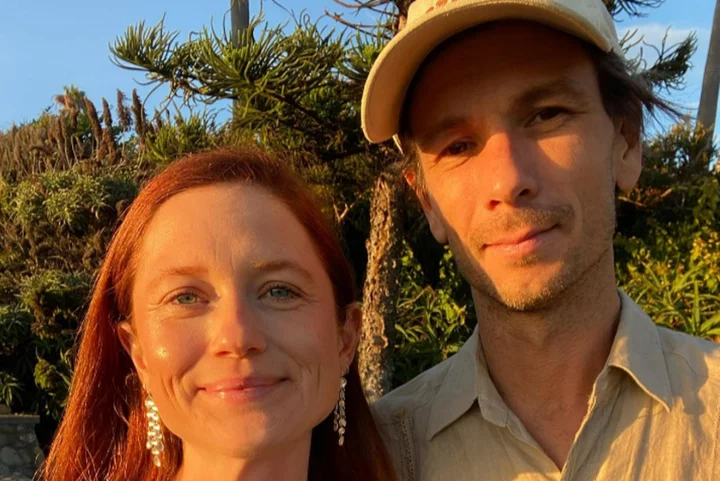
Harry Potter star Bonnie Wright announces birth and name of first child with Andrew Lococo
Bonnie Wright has announced the birth of her first child, sharing the baby’s name and first photo with her social media followers. The 32-year-old actor is best known for playing Ginny Weasley in the Harry Potter film series, which concluded in 2012. In April, she and her husband Andrew Lococo told fans that they were expecting their first child together. On Wednesday (27 September), Wright shared that she’d given birth at home last week, along with a photo of the newborn asleep under a blanket. “Say hello to Elio Ocean Wright Lococo, born at home on Tuesday 19th September,” Wright’s caption began. “We’re all healthy and happy. Andrew and I are so in love with our sun,” she wrote, adding a sun emoji. She continued her caption by praising the doula, midwives, doctor and other maternity professionals for their “amazing” work. “So grateful for our birth team that have held our hands throughout and made the journey so joyous and expanding,” Wright continued. “Birth is the wildest experience!” The actor and writer concluded her caption with a short tribute to Lococo. “Lastly thanks to Andrew my rock throughout birth quite literally as I squeezed onto you so tight and you never wavered. Elio has the most tender loving papa.” In response to the post, many fans and friends of the film star shared warm wishes in the comment section. Evanna Lynch, who played quirky Hogwarts student Luna Lovegood in four Harry Potter films, is one notable figure to have left a congratulatory message – and pointed out an unexpected link to the wizarding franchise. “Awwww congratulations Bonnie and Andrew!!! Welcome to Earth, Elio Ocean!!! ps. Hermione’s birthday twin, I’m sure you’ve been told!!” the Irish actor wrote. Others were quick to make references to the film series, with several naming the birth as the arrival of “another Weasley”. In August, Wright posted photos and video from her and Lococo’s “baby moon” in Laguna Beach, California, as they celebrated their “last quiet holiday as just two”. The couple married on 19 March 2022, a day that Wright has since described as “the best day of my life”. In an interview with Brides magazine earlier this year, she spoke about how her passion for sustainability was reflected in their choices for the ceremony, as well as in her vintage, century-old wedding dress. “The dress didn’t have the original underdress with it as it had likely perished – it being 100 years old!” she explained. “So when I was first trying it on, it was completely see-through. It was quite funny having to imagine the underdress we would end up making for it.” Read More Bonnie Wright admits feeling ‘anxious and frustrated’ by Harry Potter screen time Harry Potter star Bonnie Wright shares new details about her 100-year-old wedding dress Harry Potter star Bonnie Wright announces she’s pregnant with her first child Nick Cannon candidly admits Mariah Carey saved his life amid lupus diagnosis The best napping method to help with pulling an all-nighter Toys children play with can have an effect on their success in adulthood
2023-09-28 15:25
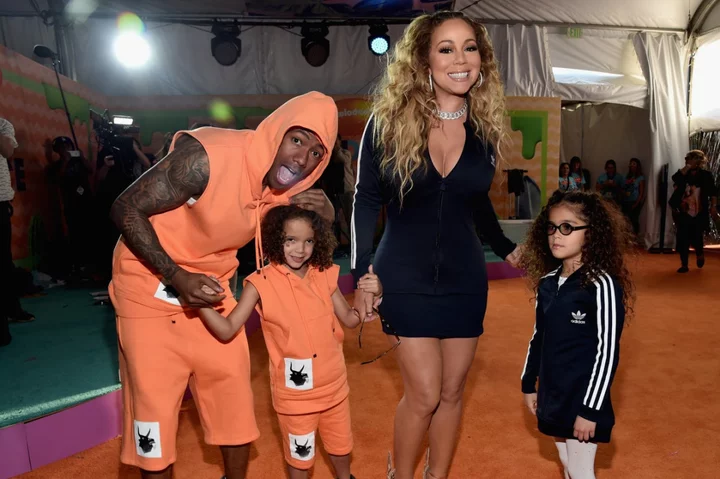
Nick Cannon candidly admits Mariah Carey saved his life amid lupus diagnosis
Nick Cannon has revealed the appreciation he has for ex-wife Mariah Carey during a difficult time. In a recent interview on the Diary Of A CEO podcast, the father of 12 wasn’t afraid to confess that he wouldn’t have survived his 2012 lupus diagnosis if it wasn’t for the “Without You” singer by his side. “She was my rock,” he admitted. “She went hard. To be honest, I probably wouldn’t be alive if it wasn’t for how hard she went with the doctors, with me, my stubbornness.” The Grammy winner, 54 and the former America’s Got Talent host, 42, saw sparks flying almost immediately when Carey cast Cannon as her love interest in the 2008 “Bye Bye” music video. It only took six weeks from the time they got engaged for Carey and Cannon to tie the knot. In 2011, they welcomed fraternal twins Moroccan and Monroe. Unfortunately, Cannon was diagnosed with lupus one year later - an inflammatory disease which occurs when the immune system attacks its own tissues. The Masked Singer host described Carey as “the perfect helpmate, the perfect matriarch, the perfect mom, the perfect wife” during this time. “It probably took a toll on us just because of the person I was in my head and the struggles that I was dealing with,” he continued. “But it definitely brought us closer together.” When podcast host Steven Bartlett asked whether Cannon believed Carey “saved his life”, he simply responded: “I absolutely do.” “But that’s what you do when you find a helpmate. When you find someone that you’re in matrimony with, you go hard for [them],” Cannon pointed out. “I feel like I went hard for her and we’ll still go hard - I lay down my life for her today. That’s what you do, it’s just family.” Cannon went on to explain how his experience with the disease put many things into perspective for him. However, it wasn’t easy for him to see things clearly while he was struggling. In fact, he told Bartlett that he was also dealing with mental health issues at the time, such as questioning his purpose and effect on the world. “Staring up from the hospital bed, staring at the ceiling all alone when everybody else is kicked out, and you gotta be face to face with your higher power, asking all those tough questions. Am I done?” he explained. “A lot of people don’t do that because we get caught up in the constant race of just living day to day, but it slowed down for me on many occasions.” While it may have been difficult for him to comprehend at the time, Cannon said he now lives his days with direction and without fear. “I’m probably reminded of my physical mortality all the time,” he noted. “And when you’re not afraid of dying, you focus on living, you know?” This isn’t the first time the TV personality has praised the “All I Want for Christmas Is You” singer. In 2022, Cannon opened up to Entertainment Tonight about the gratitude he has for his time spent with Carey. “I was talking about the fantasy of it all. I was like: ‘Yo, if I could have that same vibe of where I was at that state in my life and that age, of course I would do that all over again,’” he said. “But I’m not.” In addition to his two children with Carey, Cannon has welcomed Rise, Powerful, and Golden, with Brittany Bell; Zion, Zillion, and Beautiful with Abby De La Rosa; Halo with Alyssa Scott; Legendary with Bre Tiesi; and Onyx with LaNisha Cole. Cannon and Scott lost their baby boy, Zen, to cancer in 2021 when he was only five months old. Read More Nick Cannon’s brother says he can’t remember the 12 names of his nieces and nephews Nick Cannon shares Mariah Carey’s ‘high frequency’ reaction to actor having 12 children Mariah Carey: 'Music was my escape' The best napping method to help with pulling an all-nighter Toys children play with can have an effect on their success in adulthood Summer of female sporting events inspires millions of women to get back into the game
2023-09-28 03:26

Gaby Roslin says she’ll ‘never apologise’ for saying she’s happy post-divorce
TV presenter Gaby Roslin has said she will “never apologise” for telling people she’s happy, after she experienced moments of grief following her divorce. The former The Big Breakfast presenter and author, 59, was married to musician Colin Peel for almost a decade. They share a daughter together. “Not all my life has been joyful. My mum died young. I’ve been through divorce and lost some of my dearest friends,” she told Prima magazine. “You go through those things and you realise that life is precious and, without sounding trite, I will never apologise for saying I’m happy.” Roslin’s mother died just over 20 years ago, around the time she was beginning a new job. The TV star said that it feels like she and her husband of 18 years, David Osman, “fit together”. She shares another daughter with Osman. “We still really appreciate what we have,” Roslin, who presents a show on BBC Radio London along with sints on BBC Radio 2’s The Zoe Ball Breakfast Show and BBC One’s Morning Live, said. “The things that makes it work is that we’re not in competition with each other: We’re very, very different.” Speaking about how “life is crappy for a lot of people”, she added: “I’m someone who has always been very positive and full of laughter, but I’m aware that it’s not something everyone can hold on to. “There are coping mechanisms that have helped me, and I know they can help others, too.” Roslin revealed that some of her personal coping mechanisms have included giving up alcohol five years ago, and going for walks. “There’s a lot of ageism out there,” she said. “It’s no secret in my industry, but it’s everywhere. You can’t do this or that if you’re a certain age. No! I’m lucky that I’ve carried on working, but I have friends who have experienced it. “I know an actor who, at 55, was going for the part of someone older than her and was told that she was too old. They cast a 40-year-old. That’s so wrong.” Roslin is preparing to release her new guided journal, Spread The Joy: Simple Practical Ways To Make Your Everyday Life Brighter, which focuses on stories, illustrations, anecdotes and tips and tricks. The full interview is available now in Prima’s November issue in supermarkets and online at Mags Direct. Additional reporting by Press Association. Read More Sophie Turner and Joe Jonas reach agreement after child custody row Who is Laura Gallacher, Russell Brand’s wife of six years? Everything we know about Katy Perry and Russell Brand’s short-lived marriage Why is my teenager sleeping so much? Sounds that can help you fall asleep better Holidays to the homeland could help children hold onto family’s original language
2023-09-27 18:16
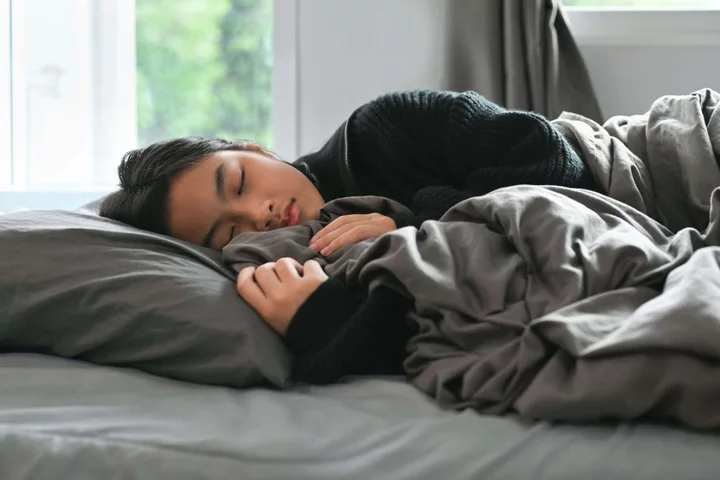
Why is my teenager sleeping so much?
When you think about it, teenagers are a lot like pandas. Like the black and white bears, teens often have a tendency to lounge around for hours, munch their way through massive amounts of grub, and snooze for extremely long stretches. It’s not unusual for youngsters to emerge zombie-like from their bedrooms hours after parents and little ones have arisen on weekend mornings, or have a ‘disco nap’ in the afternoon. But how can you tell if your child’s sleeping habits or typical for a teen – or a cause for concern? How much do teens need? “Sleep research suggests that a teenager needs between eight and 10 hours of sleep every night, so slightly more than an adult or younger child requires,” says Dr Hana Patel, sleep expert at Time4Sleep. “This is because teenagers need additional sleep to support their rapid physical, intellectual, and emotional development.” Chris Tattersall, sleep expert and MD of Woolroom explains: “They are going through a second developmental stage of cognitive maturation. Additional sleep supports their developing brain, as well as physical growth spurts.” However, it’s estimated that most adolescents in the digital age only get about 6.5 to 7.5 hours sleep. Tattersall says: “With the increased use of social media scrolling before bedtime, this is affecting thousands of teenagers’ sleep because the blue light from screens suppresses melatonin levels and delays sleepiness.” What happens if they don’t get enough sleep? “Teenagers not getting enough sleep can lead to all sorts of potential issues,” says Tattersall. Psychological symptoms may include, he warns: “Depression, difficulty concentrating, memory loss, anxiety and low self-esteem.” Plus, there’s the risk of weight gain due to eating more sugary foods to combat tiredness. “Not only does it have negative effects on their general wellbeing but it can also affect their academic performance,” Patel adds. Is it possible to sleep too much? It may seem counterintuitive, but sleeping too much can actually make young people more tired. “Anything over eight to 10 hours of sleep for teens could be considered excessive and may cause daytime sleepiness,” says Patel. “This can negatively affect interpersonal relationships, extracurricular activities, general health and, for older teens, driving too.” It’s important for parents to watch for signs that teens are struggling with sleep. “Look out for concentration difficulties, shortened attention span, memory impairment and lack of enthusiasm or energy,” Tattersall says. “You also might notice moodiness and aggression, poor decision-making, and signs of depression.” Patel says: “Sometimes teens may also complain of symptoms like headaches and migraines.” Try to encourage good ‘sleep hygiene’ in terms of a youngster’s evening routine, meaning avoiding large meals and caffeine before bed and creating a relaxing bedroom environment. “If possible, reduce the use of devices like smartphones and tablets, TVs or computers in the bedroom at night, as the light from the screens interfere with sleep,” Patel says. “If you are concerned about your teenager’s sleeping habits and the effects of this on their health, consult with your GP.” Read More Charity boss speaks out over ‘traumatic’ encounter with royal aide Ukraine war’s heaviest fight rages in east - follow live Kate gives a lesson in autumnal power dressing in a green trouser suit How can I boost my soil when I go peat-free? See Cate Blanchett champion sustainable fashion at glamorous Giorgio Armani show
2023-09-27 16:26
